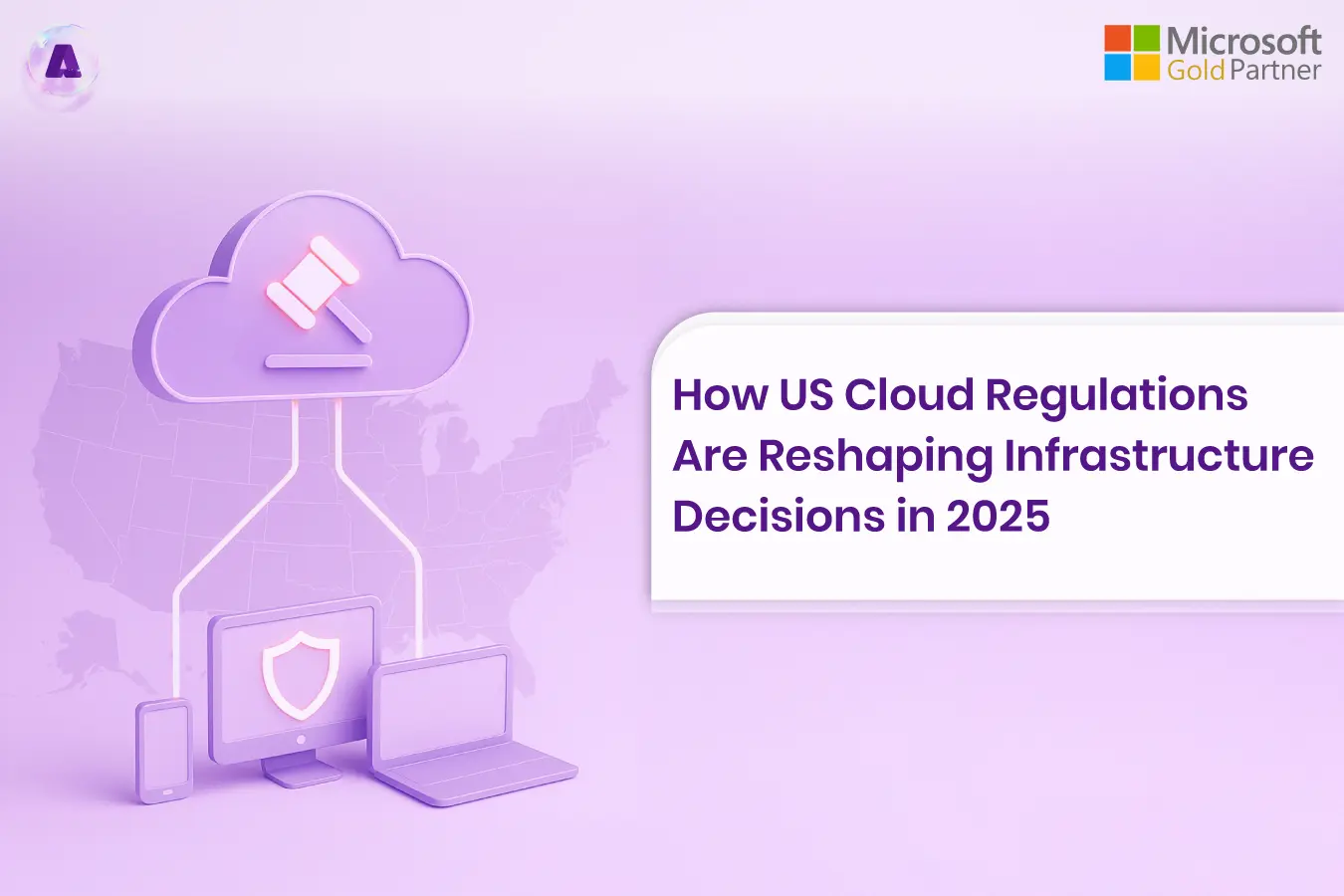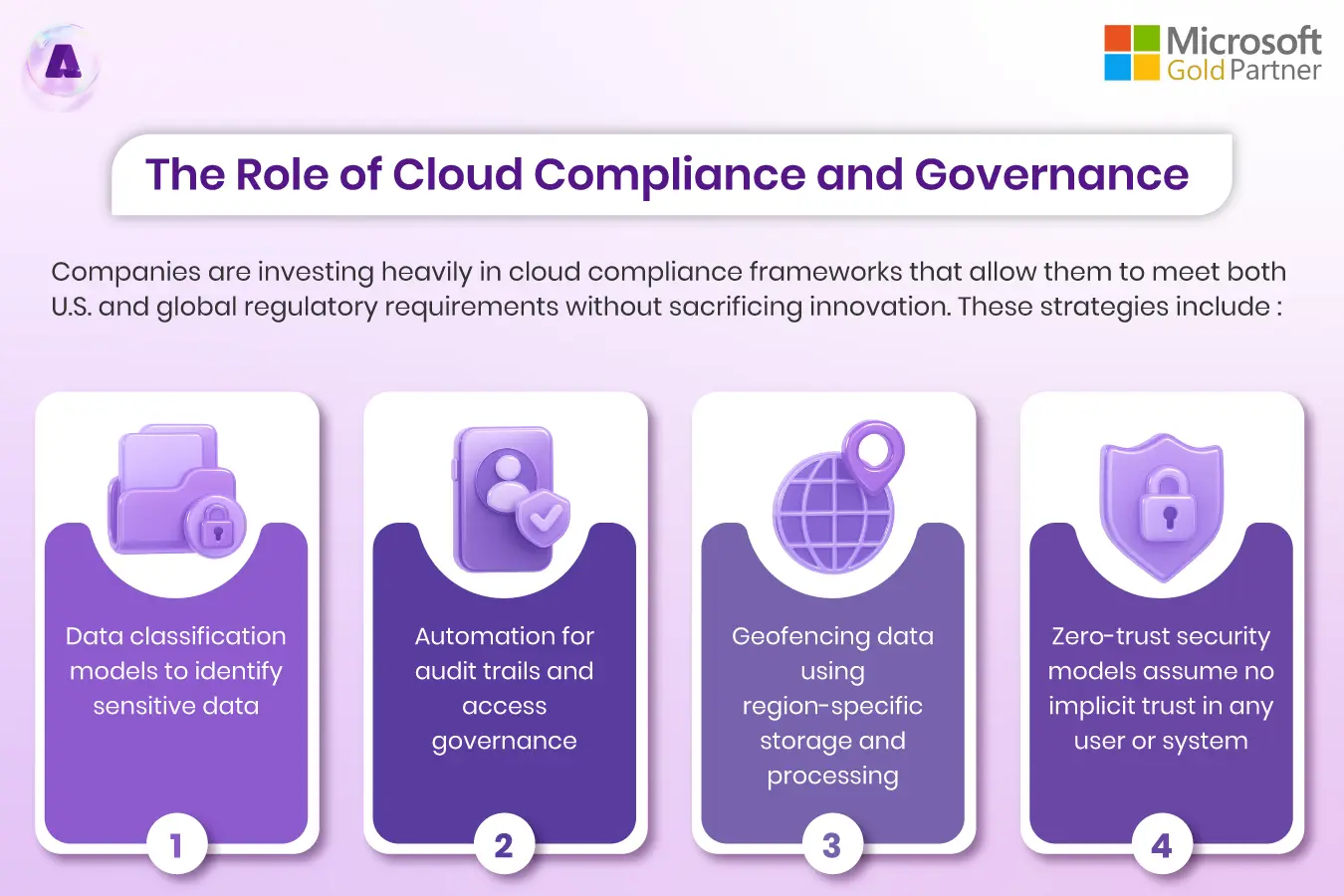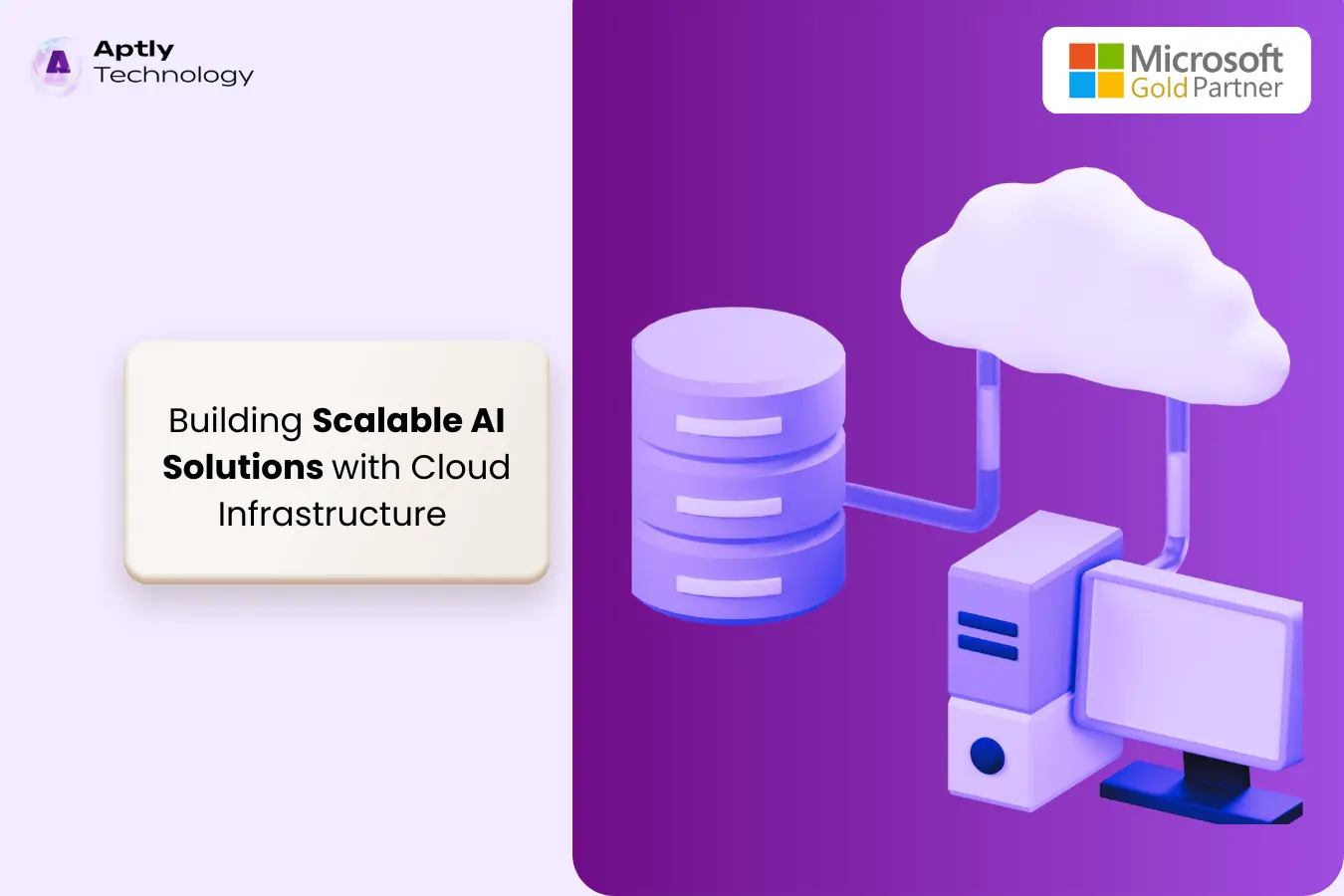
In 2025, US cloud regulations will play an increasingly pivotal role in shaping how organizations choose, design, and manage their cloud infrastructure. From data residency to cybersecurity mandates, evolving government cloud data policies and U.S. data privacy laws are forcing companies to rethink their cloud strategies to remain compliant, secure, and future-ready.
Understanding US Cloud Regulations in 2025: What’s Changed?
The US cloud regulations has grown significantly in complexity over the last few years. At the center are three critical forces:
Implications for Cloud Service Providers and Global Data Privacy-
- For US-Based CSPs: They are required to comply with lawful orders to provide data, even if stored abroad, which may conflict with foreign data protection laws.
- For International Users: Data stored with US CSPs may be subject to US legal processes, raising concerns about foreign sovereignty and privacy protections.
- For Global Law Enforcement: The Act facilitates more efficient cross-border data access for investigations, provided that executive agreements are in place.
FedRAMP – A federal standard for cloud products used by government agencies. Cloud providers must meet stringent requirements around security, access controls, and auditing.
Sector-specific regulations – Including HIPAA for healthcare, GLBA for financial services, and the evolving frameworks around consumer privacy modeled after the California Consumer Privacy Act (CCPA).
The Rise of Cloud Compliance in the US
As regulatory oversight intensifies, cloud compliance in the US is no longer just an IT issue—it’s a boardroom priority. Enterprises must ensure that their cloud infrastructure compliance aligns with a growing list of standards governing data storage, encryption, access control, and incident response.
Failure to comply can result in:
- Hefty fines and legal exposure
- Loss of federal or enterprise contracts
- Reputational damage and customer churn
U.S Cloud Compliance Market Trends
According to grandviewresearch, The US cloud compliance market is expected to experience significant growth over the coming years. This trend is fueled by the increasing adoption of cloud-native technologies and DevOps methodologies. Organizations are turning to cloud-native approaches—such as microservices, containers, and serverless architectures—to enhance the scalability and agility of their applications.
At the same time, DevOps practices like continuous integration and continuous delivery (CI/CD) are becoming the norm in cloud-based development. To keep pace, cloud compliance tools are advancing to fit seamlessly into these fast-moving environments.
These solutions now offer automated compliance monitoring and integrate directly into development workflows. By embedding compliance measures within the DevOps lifecycle, companies can maintain regulatory alignment even as their systems grow and adapt.
Impact on Multinational Cloud Strategies
The regulatory impact on cloud adoption is particularly pronounced among global companies that operate across multiple jurisdictions. US laws, especially the CLOUD Act, have led some European and Asian firms to:
- Reevaluate contracts with US based cloud service providers
- Shift toward hybrid or sovereign cloud models
- Prioritize providers with data centers in regions that respect local data privacy laws
For example, in response to US data access policies, tech giants like Microsoft and Google have launched “sovereign cloud” solutions that keep data within specific geographic borders and under local operational control.
The Role of Cloud Compliance and Governance

Choosing Cloud Providers Under US Regulations
With increasing scrutiny around data privacy, cybersecurity, and regulatory compliance, selecting the right cloud provider is critical—especially for organizations operating in the United States. Whether you’re in healthcare, finance, government, or tech, regulatory frameworks like HIPAA, FedRAMP, and the CLOUD Act impose strict requirements that your cloud environment must meet.
If you’re wondering what to consider when choosing a cloud provider under US law, here are a few key factors:
- Data Residency & Jurisdiction: Ensure your provider offers US based data centers and clarifies how they handle cross-border data access, especially under the CLOUD Act.
- Compliance Standards: Look for providers that meet industry-specific certifications like SOC 2, ISO 27001, HIPAA, and FedRAMP. These demonstrate readiness to support your regulatory obligations.
- Security Architecture: Verify encryption standards, identity management, and incident response policies to ensure alignment with U.S. compliance frameworks.
- Audit Support: Choose a provider that offers robust logging, monitoring, and reporting tools to support internal audits and regulatory reviews.
- Contractual Clarity: Understand the shared responsibility model and ensure SLAs clearly define who owns what in terms of compliance, data protection, and breach response.
To simplify the decision process and ensure full compliance from day one, organizations often turn to specialized partners. Aptly Technology’s Cloud Infrastructure Services help businesses navigate vendor selection, compliance mapping, and secure cloud deployment strategies aligned with US regulatory standards.
The Future of Government Cloud Data Policies
The US government continues to update its stance on cloud infrastructure compliance in the face of rising cybersecurity threats and geopolitical tensions. Notable developments expected in 2025 include:
- New legislation to extend data localization requirements.
- Federal mandates on AI model transparency and data lineage.
- Stricter guidelines for third-party risk management in public cloud environments.
These shifts are expected to tighten control over how data is handled, pushing more organizations toward private or hybrid cloud solutions with stronger compliance guardrails.
Conclusion: Aligning with US Cloud Regulations Is No Longer Optional
With US cloud regulations becoming increasingly complex and far-reaching, organizations must treat cloud compliance as a continuous, proactive effort—not just a one-time task. From startups to Fortune 500 enterprises, aligning infrastructure with evolving US data privacy laws and government cloud policies is now essential for maintaining operational integrity, minimizing legal risk, and earning long-term customer trust.
This is where Aptly, a US based Microsoft Gold Partner and expert in cloud infrastructure and compliance, becomes your right partner. Aptly helps businesses navigate regulatory challenges with confidence—ensuring your cloud strategy is secure, scalable, and fully compliant with US requirements.
Now more than ever, your cloud decisions need to be strategic. With Aptly by your side, they can be secure and regulation-ready, too.





